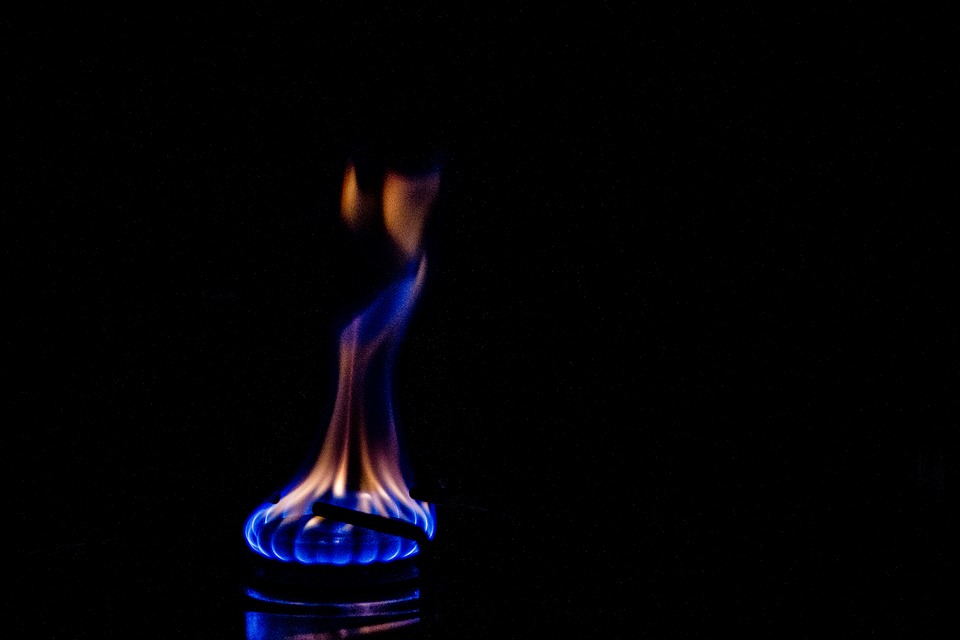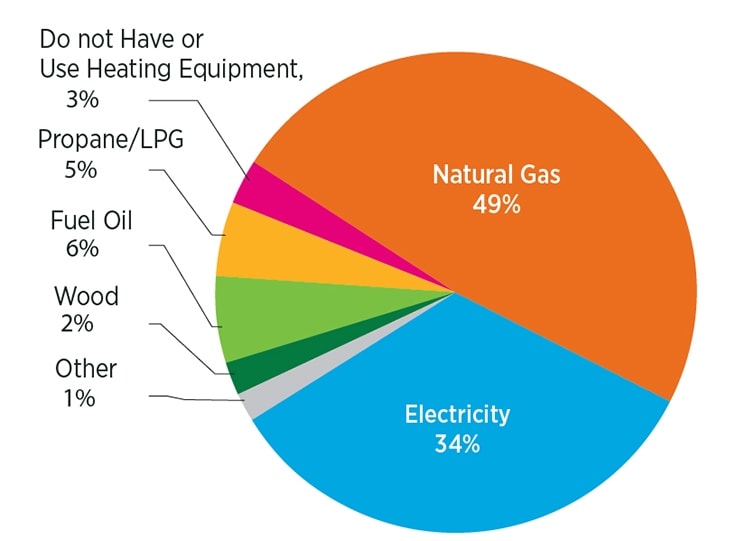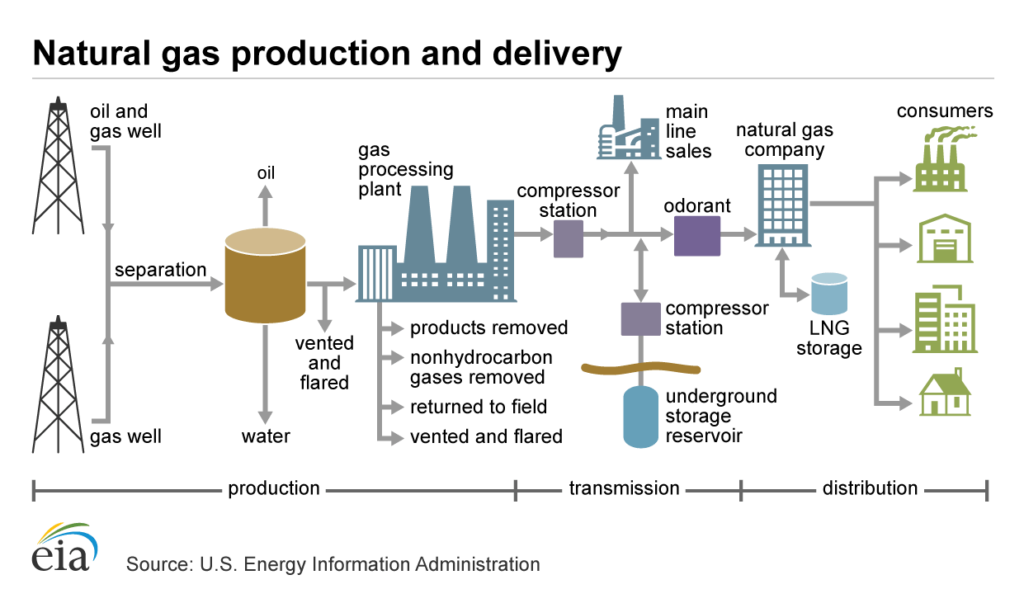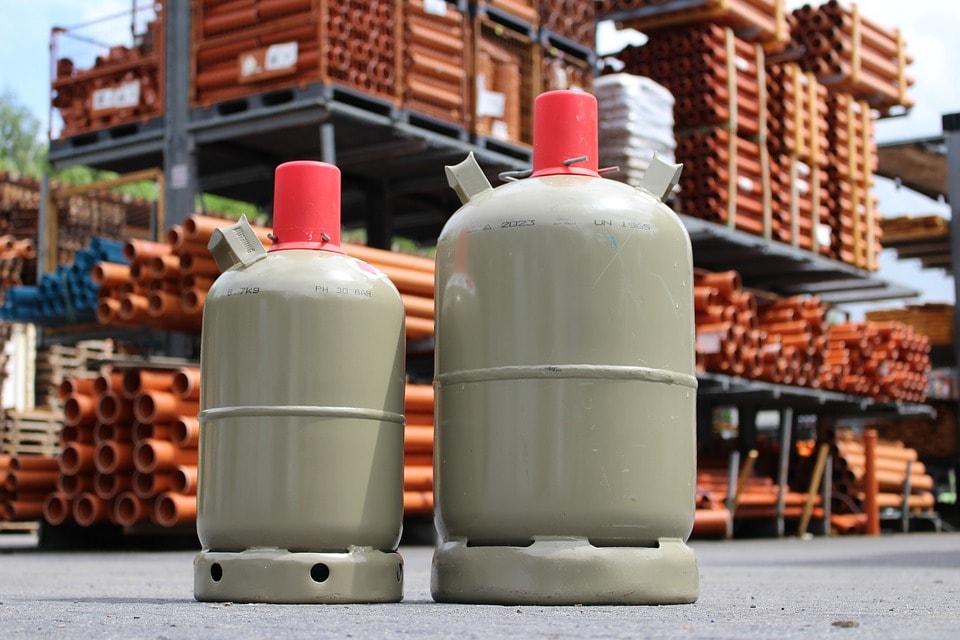 In terms of the energy source that is commonly used to power homes, natural gas and propane are two of the top options people look for. There are potential advantages and disadvantages to both, and you should consider them heavily before seeking a house.
In terms of the energy source that is commonly used to power homes, natural gas and propane are two of the top options people look for. There are potential advantages and disadvantages to both, and you should consider them heavily before seeking a house.
Ponder on the following categories and then make a determination as to whether propane or natural gas is the direction you should go.
Table of Contents
The Difference Between the Two

First, the difference between these two energy sources should be understood. Propane is essentially a fossil fuel and a hydrocarbon (such as butane or ethane). Natural gas is also a fossil fuel which was created millions of years ago through animal and plant matter which gradually decayed under underground heat sources.
Commonly, natural gas is dubbed the “clean energy alternative” since it has clean-burning qualities and produces less harmful emissions. Propane does not have toxic qualities to harm the environment and is also called “liquefied petroleum gas.”
In terms of the specific makeup, natural gas mostly comprises of methane that has been converted into a liquid in combination with other residual gases. Propane is a fully refined fuel that is a part of other materials.
Cost
Propane will hurt your wallet a little more than natural gas will. However, it should also be considered that propane will produce efficient heat with less fuel requirements. Propane is measured in gallons while natural gas is measured in cubic feet. Check out the natural gas prices Alberta. Historical prices in the US can be accessed here.
Based on the area you are living in, propane may cost less than average. However, both options have proven to be more economically friendly than electricity.
Here are how these two sources fare in important categories.
Heat Energy Efficiency
Propane delivers more BTU’s (British Thermal Units) and it burns less volume per hour as opposed to natural gas. Propane has also been highly touted as an efficient alternative for many home applications. Practically speaking, this means that propane will deliver approximately double the energy that natural gas has. In other terms, a furnace heated by propane will produce the same amount of heat that natural gas can, but with only half the fuel supply.
This can be a very important factor if you are considering the price (natural gas tends to be more expensive than propane). While natural gas in itself is not too expensive depending on where you are living, the amount of fuel usage should be considered when choosing your energy supply.
Eco-Friendliness
Both natural gas and propane are clean burning. Natural gas is a greenhouse gas, but it burns in the same way that propane does. There is little difference between these two sources, because both have proven to be very friendly to the environment.
Mode of Delivery

Natural gas is primarily delivered through a pipeline through whatever provider has the rights to do so in the local neighborhood. The natural gas remains in a gas state, which means that manual delivery will not be required. However, the infrastructure that is required to deliver the natural gas can result in more hidden costs.
This includes the cost of converting your electrical appliances to natural gas, digging up the yard to bring a pipeline in, and hiring a contractor to help you with house updates that you may need.

As for propane, they usually come in permanent storage tanks or portable canisters. In order to refill the tank, customers will have to go to a retail location or hire a company for delivery.
One key difference is that since the natural gas is delivered underground, the customer will not have control over their provider. This could prove to be troublesome if the service is not considered to be satisfactory.
Safety
Natural gas is lighter than propane, which means that it will dissipate into the atmosphere more quickly than propane does. Propane is a little thicker in its consistency, which means it will also take longer to disintegrate. Therefore, it could technically be stated that natural gas is safer to use because there will be less residual gas in the air when it is released.
Efficiency
One cubic foot of propane equates to approximately 2,516 BTU’s whereas one cubic foot of natural gas is around 1,030 BTUs. This means that propane as more than double the capacity of natural gas. Per gallon, natural gas is cheaper, but more of it will be required in order to heat the same appliances as propane. This means that less fuel will be needed with propane.
Which Gas Is Right For Your Home?
Propane gives you more BTU’s for your dollar, and will run at a very efficient rate despite being a bit higher in cost. Propane also naturally works better for activities such as cooking, especially if you have an outdoor barbeque that you can use. In high-heat grilling situations that require a great deal of power, propane will be efficient to get the job done. You can even use propane in your portable water heaters.
Another advantage that you have to consider with propane is that it is portable and can easily adapt to other systems located in our house. This can prove to be very convenient if you have to move to different area.
Natural gas comes with its own advantages, such as a lower cost and a more environmentally friendly makeup. You will also save yourself the hassle of never having to schedule a delivery because it will always be pouring into your home underground.
If you already have the infrastructure that correlates with natural gas well, you may not need to convert to propane. However, you should also consider that natural gas will not give you as much efficient energy as propane does. The lack of control you have over your provider is also something to be considered.
In terms of what is right for your home, you have to carefully evaluate your lifestyle and the access you have to both fuels. You should also account for how much infrastructure would be required to get either fuels because that will influence how much you will have to pay in hidden costs. Also ask yourself which appliances you will see yourself using the most and then make a determination as to which source will be the better option for your home.




I like how you said that propane is an effective alternative to home applications because it can burn more and use less fuel. Homeowners that want to save money on gas bills should consider using propane because it uses much less fuel to burn the same amount of time as natural gas. Thank you for explaining why propane is a suitable alternative for gas usage in a house.